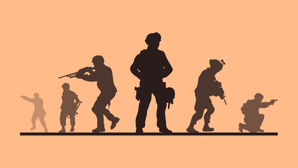The article emphasizes the importance of enterprise security in the context of global threats such as terrorism, cyber warfare, and economic sabotage. The rise of terrorism has led to the mainstreaming of security functions in organizations, with a focus on protecting physical assets, manpower, and information.
In the post-9/11 world, nations are facing new challenges in ensuring the security of their citizens and infrastructure. India, in particular, has been dealing with cross-border terrorism instigated by Pakistan. The article highlights the need for proactive measures to address security threats, including terrorism, espionage, and sabotage.
Security functions encompass physical, personnel, and information security, with a focus on detecting vulnerabilities and protecting sensitive information. As technology advances, cyber security has become a key aspect of enterprise security, requiring specialized skills and knowledge to combat digital threats.
The article also underscores the importance of leadership in promoting a culture of security within an organization. The security chief plays a critical role in overseeing security protocols, maintaining communication with top management, and ensuring cost-effective security measures.
Ultimately, the mainstreaming of security requires the collaboration of all members of an organization, from top management to frontline staff. Awareness programs, periodic briefings, and information-sharing initiatives can help create a security-conscious workplace and strengthen the overall security posture of the organization.

 New COVID-19 Variant Alert! KP.2 Can Bypass Your Immunity—How You Can Protect Yourself, Learn Everything
New COVID-19 Variant Alert! KP.2 Can Bypass Your Immunity—How You Can Protect Yourself, Learn Everything How to Generate your E-Shram Card? Apply Online
How to Generate your E-Shram Card? Apply Online PM Vishwakarma Yojana 2024: How to Apply Online; STEP-BY-STEP Guide
PM Vishwakarma Yojana 2024: How to Apply Online; STEP-BY-STEP Guide Pradhan Mantri Surya Ghar Yojana 2024: Scheme Details, Eligibility, Subsidy and How To Apply Online?
Pradhan Mantri Surya Ghar Yojana 2024: Scheme Details, Eligibility, Subsidy and How To Apply Online? BJP Youth Wing President Tejasvi Surya Nominated His Second-In-Command, Abhinav Prakash For A Debate With Rahul Gandhi
BJP Youth Wing President Tejasvi Surya Nominated His Second-In-Command, Abhinav Prakash For A Debate With Rahul Gandhi Haryana Free Scooty Yojana 2024: How to Apply Online?
Haryana Free Scooty Yojana 2024: How to Apply Online? Char Dham Yatra 2024 Starts: Online Registration, Routes, And Everything Important
Char Dham Yatra 2024 Starts: Online Registration, Routes, And Everything Important At UNGA, India Votes In Favor Of Palestine’s Bid To Become Full Member
At UNGA, India Votes In Favor Of Palestine’s Bid To Become Full Member